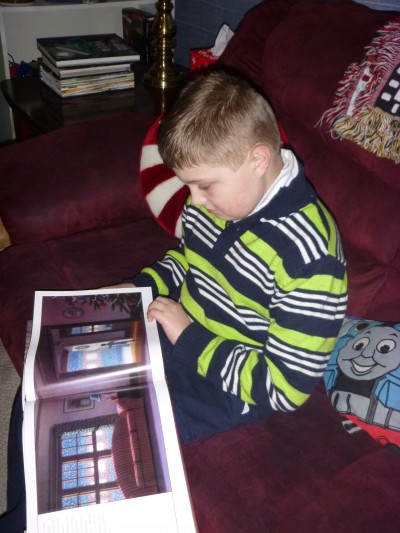A few weeks ago I posted a piece called “Love Letter to my Autistic Son for When I’m Gone” on the Autism Speaks website. It clearly resonated with many people, and I read every single comment on their website and Facebook page, and responded to as many as I could. The comments were both lovely, and in some instances, heartbreaking.
Many recounted their fears of what their son’s or daughter’s life would be like when they were elderly, and they themselves had passed away. One comment I read in the myriad places I posted the piece stuck out to me in particular the day the piece went “viral.” In it, the reader blessed me. Then she intimated that perhaps my son’s fate would differ from what I imagined it would be, that perhaps one day he would become more independent than I thought, which to my mind equated to “don’t give up.” I let her words roll around in my brain for a while as I tried to construct a response. Eventually, I quit.
The truth is my son is almost twelve years old. He has two words he uses independently, namely “popcorn” and “mama,” and sometimes to acquire those things he uses means other than words. He still needs help with toileting, and minimal assistance with dressing and grooming. He is one of the lights of my life, but he yet requires the almost constant supervision he needed as an infant and toddler.
|
|
One day when his father and I are gone, unless he lives with his brother, he will be in the care of people not yet born. He will never live independently.
And to me, accepting this does not mean giving up.
Eleven years ago when he was first diagnosed with autism, I completely wanted an independent outcome for him. At the time I lived in a state that only offered us eight hours of Early Intervention a month rather than the one hundred and twenty studies showed he needed if we were to attain the holy grail of independence. For almost a year-and-a-half we labored together, me and my small son, as I desperately attempted to elicit sounds from my seventeen-month-old, then two-year-old, then child approaching three. I still read those “What to Expect” books and religiously studied their milestones, often feeling despair at how much he’d fallen behind.
I don’t remember when I finally realized he wouldn’t be one of those kids who shed his diagnosis or moved to the milder end of the spectrum. It was more of a gentle dawning for me, a realization that marriage, college, and independent living were not in the cards for my eldest boy. I know I grieved for those choices he would never have, but even then I acknowledged that these were life choices I had needed to be happy. My boy didn’t. This realization helped me shelved my grief and move on to accepting his probable life trajectory- school until he turned twenty-one, hopefully some sort of meaningful employment, and a life spent living with constant support.
And I realized that shedding these more “typical” dreams is not giving up. Instead, I’m being realistic about my son’s future, and planning for it in the best way possible.
I understand what the woman in the comment probably meant. I don’t know exactly what the future holds for my child- none of us does. But the best gift I can give to him is to value him for what he can do, and plan to put the appropriate supports in place as best I can. I will always regret that I won’t be here to see him draw his last breath. In my fantasy world I live to be one hundred and twenty, and Justin passes at eighty-four, with me holding his hand as he is ushered into the great unknown.
It’s good to have goals.
Control freak that I am, I can’t make that happen. But what I can do is accept what lies before him, and try to construct for him the best life possible. A life where he remains the joyful, ebullient soul that he is. A life where he is productive, and safe. A life where he is loved the way he deserves.
A life that never means giving up.
For more on my family visit my blog at autismmommytherapist.wordpress.com/
Follow me on Facebook at Autism Mommy-Therapist












